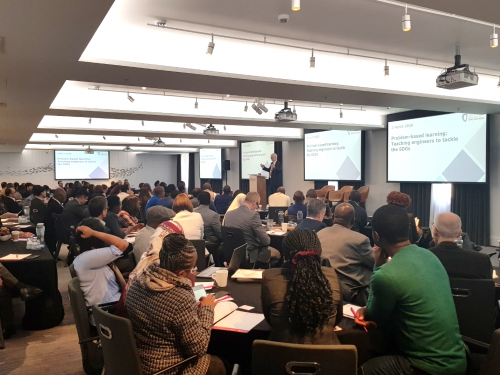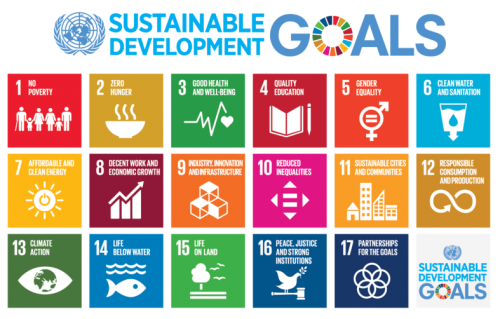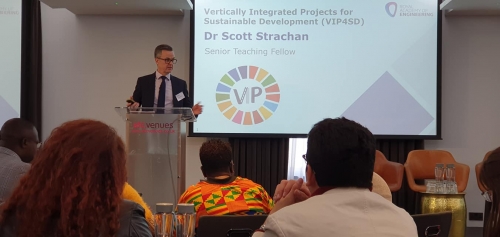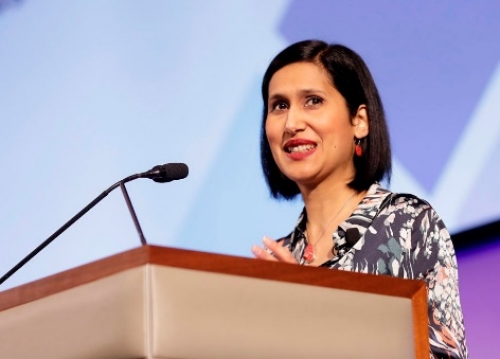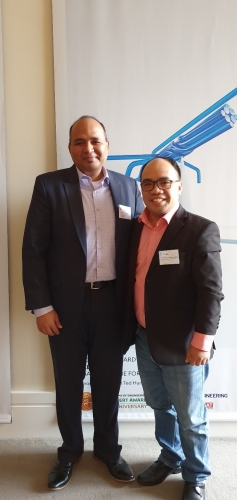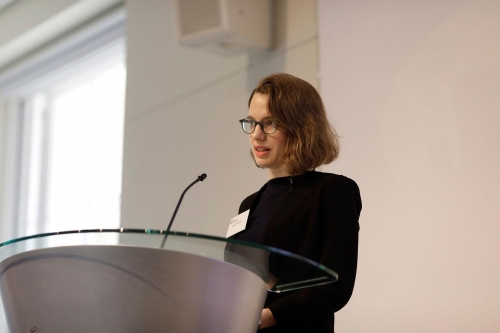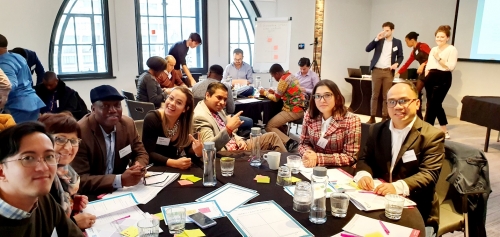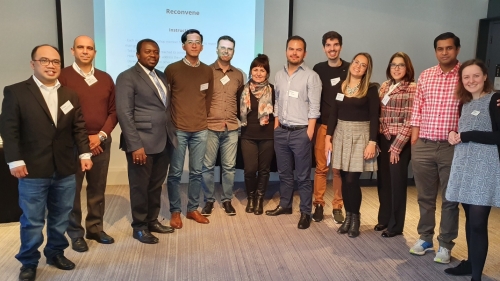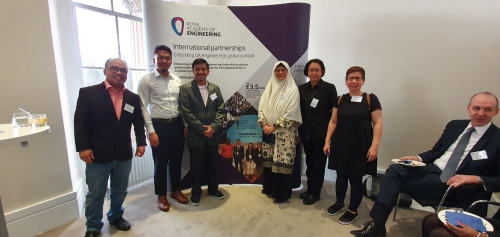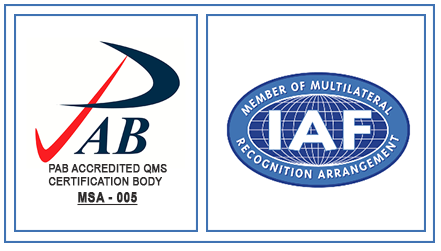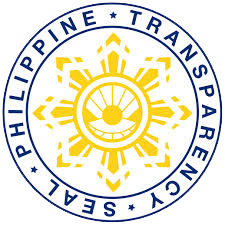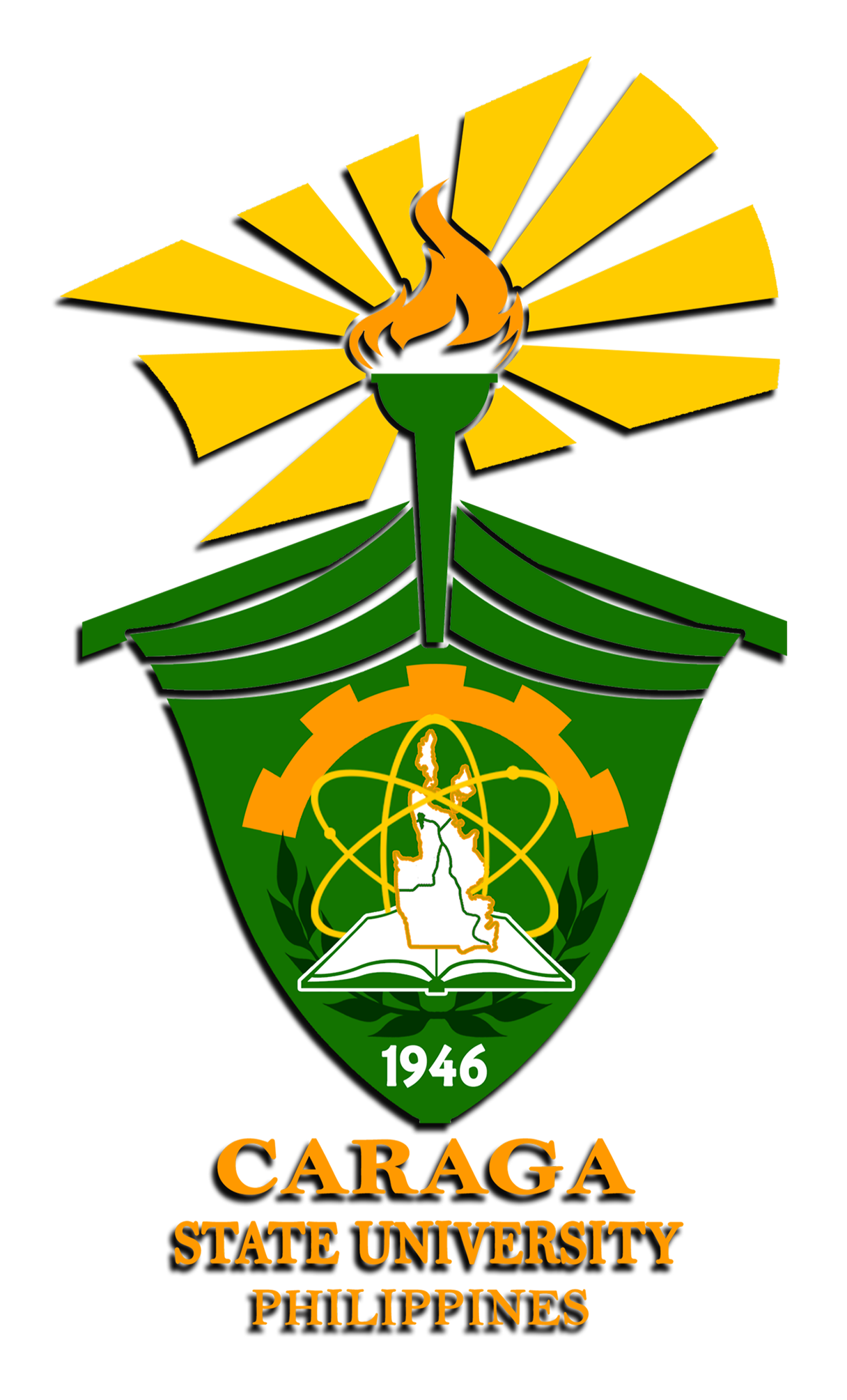News and Events
CSU- ITLO Director Joins Royal RAEng Conference on SDGs in UK
Caraga State University’s Prof. Jeffrey T. Dellosa and Technology Development, Transfer and Licensing Office (TDTLO) director with another representatives from the Philippines joined the conference on “Problem-based Learning: Teaching Engineers to Tackle the Sustainable Development Goals (SDGs)”, held at the Country Hall and the Royal Academy of Engineering (RAEng), Prince Philip House in London, United Kingdom early March 2020.
The conference brought together select and leading engineers, entrepreneurs, university professors and awardees (Africa Prize of the RAEng Program) from across the world supported by the Newton Fund and the Global Challenges Research Fund, and highlighted RAEng’s present efforts to solve the rapidly-evolving and increasingly complex challenges in the world today.
Engr. Dellosa’s attendance to the conference was sponsored by the same organizations through the Leaders in Innovation Fellowship (LIF) Program. Engr. Dellosa is a LIF fellow having completed the LIF program in 2019. Aside from being the Director of the Technology Transfer and Licensing Office (TTLO), Prof. Dellosa is also the Manager of the Innovation and Technology Support Office (ITSO) of the CSU. Attending the conference is his second time in the Royal Academy of Engineering in London, UK. Mr. Kenneth Kim, Founder, and CEO of BioTech-in-a-Box (BTBox) was the other participant from the Philippines.
Professor Peter Goodhew, one of the Academy’s Fellows, Professor at the University of Liverpool and presently the Chair of the Engineering X Program welcomed the participants on the first day of the conference. He explains the important role that engineering will play in achieving the SDGs. He emphasized that the goal of the conference is to bring engineers to discuss how to make significant progress with the SDGs for the next 10 years. By gathering them in the conference achieved the first tasks, but discouraged in jest the shaking of hands and getting too close due to the current situation on the novel coronavirus or COVID-19.
The SDGs, which started out as the Millennium Development Goals (MDGs) in 2000 where 189 countries met together to find ways to eradicate global challenges such as hunger and poverty, are goals set to continue solving these problems by the next 10 years.
Dr. Strachan stressed that the challenges in the SDGs won’t be achieved by business as usual, and that we needed to change our behavior, our environment, how we treat each other, and the way we work and do business. He encouraged university professors to disrupt the way we teach engineering students, the way we let our students ask questions and that we needed to advance the teaching and learning process by stimulating students to ask thought-provoking and unconventional questions, for students to be cooperative rather than competitive, and finally introduce an approach that are more interactive, explotary, action-oriented, problem-based, experiential and transformative learning.
Dr. Hayaatun Sillem, the Chief Executive Officer of the Royal Academy of Engineering gave her opening remarks in the evening session. Dr. Madhavan shared his book “Applied Minds: How Engineers Think”. The topic was on engineers’ way of thinking and approach to design. The launch of the Global Engineering Capability Review was the main highlight of the opening ceremonies.
Prof. Goodhew in his keynote address said that we know that engineering offers an important lever by which countries around the world will be able to achieve sustainable development goals. This review is important because engineers and engineering cannot perform this role efficiently, effectively and safely without the appropriate infrastructures being in place, and this requires the shared understanding, cooperation and coordinated action of policymakers, educators, business executives and others.
Ms. Antonia Kerle, the Project Manager of The Economist Intelligence Unit (The EIU) in London reporter that the field of engineering is broad, evolving and integral to the promotion of human development and economic growth. Engineers play a critical role in designing and developing infrastructure, systems and processes that make the world safer, and ultimately support the achievement of broader social milestones such as the United Nations’ (UN) Sustainable Development Goals (SDGs).
The Philippines placed 25th in the engineering industry and 36th on safety standards, 80th on knowledge. However, the report indicated n/a for labor force and 81st on Digital infrastructure. JTD/pico
Admissions
Registrar
Guidance
Office of the President
Public Information and Communication Office
Course Particulars
College of Engineering and Geo-Sciences
College of Agricultural and Agri-Industries
College of Mathematics and Natural Sciences
College of Forestry and Environmental Sciences
College of Computing and Information Sciences
College of Education
Philippine Standard Time
Transparency Seal
Design by ICT Center.

